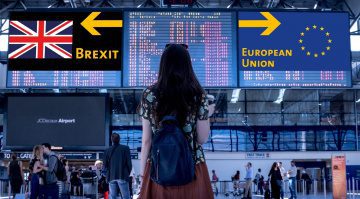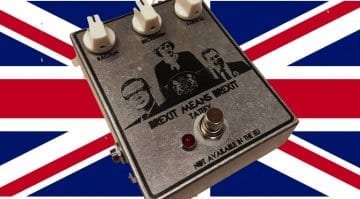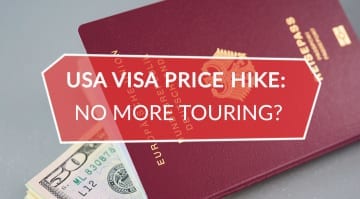Brexit: How will the break-up affect touring musicians?
After dragging on for four long years, Brexit has finally come to pass. The commemorative 50p coins have been minted, and the blue passports are making a return. But what does this mean for the gigging musician?
So, here we all are. Four years and three Prime Ministers after the referendum, the UK has finally left the building. Political opinions aside, how does Brexit affect the working musician?
It turns out there’s been a lot of misinformation out there. Some media have reported that in case of a “no deal” Brexit, musicians from the EU would require a Tier 5 visa to work in the UK. costing £244 per person. We’ve had a closer look and we found that this doesn’t seem to be true.
Here’s an excerpt from the recently published guidelines on its points-based immigration system and visas:
The UK’s existing rules permit artists, entertainers and musicians to perform at events and take part in competitions and auditions for up to six months. They can receive payment for appearances at certain festivals or for up to a month for a specific engagement, without the need for formal sponsorship or a work visa.
As far as we can see, if you’re a musician in the EU, you will be able to come to the UK on a standard visa, perform at gigs for up to a month. That visa costs £95. Now that’s not exactly cheap. For smaller acts that increases the cost of coming to the UK to play considerably. But it’s easier and cheaper than the Tier 5 visa.
Come out and play
It seems that British musicians wishing to perform in the EU will also be facing a few Brexit-related obstacles. According to the ISM (Incorporated Society of Musicians), in a ‘post-transition period Brexit scenario‘, musicians travelling with an instrument to work in the EU could incur costs of up to £1000. Yes, that’s the worst case scenario.
There is already a petition up on change.org asking the government to re-evaluate its post-Brexit policies and make it easier for musicians to travel within the EU. It suggests that a musician passport be valid for a minimum two years, is cheap or ideally free, and covers all EU member states.
It’s difficult to say for sure what will actually happen once the ‘transition period’ ends on December 2020. Hopefully, it won’t affect your touring next year! Are you a musician from the EU who tours regularly in Britain? Or a British musician who often plays gigs in the EU? How do you think Brexit will affect you?







